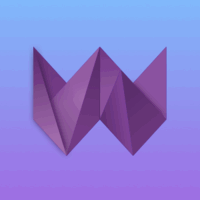Description

Webix

Pega 7 App
Comprehensive Overview: Webix vs Pega 7 App
Webix
a) Primary Functions and Target Markets:
Primary Functions:
- Webix is a JavaScript library designed for building cross-platform, data-rich web applications.
- Provides over 100 UI widgets including data tables, charts, forms, and dashboards for efficient frontend development.
- Supports modern web technologies and frameworks such as Angular, React, and Vue.js for integration.
- Offers features like drag-and-drop, data binding, and API integration for dynamic web interfaces.
Target Markets:
- Webix primarily targets developers and companies involved in web development, especially those looking to build business applications with sophisticated user interfaces.
- It caters to industries such as finance, healthcare, and IT where data-heavy applications are common.
- Useful for small to medium-sized enterprises (SMEs) as well as larger corporations requiring custom-built web applications.
b) Market Share and User Base:
- Webix is a niche player in the broader market of JavaScript UI frameworks, which includes competitors like React, Angular, and Vue.js.
- It has a smaller market share compared to these giants but is favored for specific use cases that require robust data management features.
- The user base consists of developers seeking a comprehensive set of UI components out-of-the-box rather than building them from scratch.
c) Key Differentiating Factors:
- Offers a large collection of ready-to-use UI components, which is advantageous for quick development.
- Provides easy integration with popular front-end frameworks, enhancing flexibility and adoption.
- Proprietary licensing can be a factor in decision-making compared to open-source frameworks.
Pega 7 App
a) Primary Functions and Target Markets:
Primary Functions:
- Pega 7 is an application development platform focused on Business Process Management (BPM) and Case Management.
- Offers capabilities for automating complex business processes and workflows.
- Provides visual tools for app development, with minimal coding, thus enabling rapid application development (RAD).
- Includes robust analytics for real-time decision-making and process improvement.
Target Markets:
- Targets large enterprises, primarily in sectors like finance, insurance, healthcare, and government.
- Suitable for organizations looking to streamline operations, improve efficiency, and enhance customer engagement through automated processes.
b) Market Share and User Base:
- Pega 7 is recognized as a leader in the BPM and Case Management markets, competing with platforms like Appian and IBM BPM.
- Enjoys a significant market share due to its specialized focus and comprehensive toolset.
- The user base includes many Fortune 500 companies that rely on Pega for enterprise-scale application solutions.
c) Key Differentiating Factors:
- Strong focus on BPM and Case Management sets it apart from general app development platforms.
- Pega's model-driven architecture reduces the need for extensive coding, facilitating faster deployment and ease of use.
- Offers extensive customization options for large enterprises, with a focus on scalability and adaptability.
Comparison Summary
-
Primary Functions and Target Markets: Webix is more developer-focused, providing UI components for web apps, whereas Pega 7 is enterprise-focused, emphasizing process automation and management.
-
Market Share and User Base: Webix holds a smaller niche market share compared to mainstream JavaScript frameworks, while Pega 7 is a strong performer in the enterprise BPM space with a larger, diverse user base from various large industries.
-
Key Differentiating Factors: Webix offers comprehensive UI components for web development with diverse integration options, while Pega 7 provides a specialized platform for enterprise process management with a focus on low-code development.
Contact Info

Year founded :
2013
+1 972-395-3555
Not Available
India
http://www.linkedin.com/company/webixlc

Year founded :
Not Available
Not Available
Not Available
Not Available
Not Available
Feature Similarity Breakdown: Webix, Pega 7 App
When comparing Webix and Pega 7 App, it's important to understand that these two products serve different purposes. Webix is a UI library focused on delivering robust front-end components, while Pega 7 App is a platform for building enterprise applications with a focus on business process management (BPM). Despite these differences, we can identify parallels and contrasts in their features.
a) Core Features in Common
-
UI/UX Design:
- Both Webix and Pega 7 offer tools to create compelling user interfaces. Webix provides extensive UI components, while Pega 7 App includes tools to design user interfaces integrated into business applications.
-
Responsive Design:
- Both platforms emphasize responsive design. Webix has CSS and JavaScript-based components that adapt to various screen sizes, whereas Pega 7 ensures applications are mobile-ready.
-
Customizability:
- Webix offers a high degree of customization for its UI components. Similarly, Pega 7 allows customization through its rule-based system to tailor applications to specific business processes.
-
Integration Capabilities:
- Both can integrate with external systems, though Webix primarily integrates via API endpoints with backend services, and Pega integrates with enterprise systems through connectors.
b) User Interface Comparison
-
Webix:
- Focused on providing a wide range of UI components like data tables, charts, forms, and more.
- Requires JavaScript proficiency for implementation and customization.
- Offers a lightweight framework suited for dynamic web applications and dashboards.
-
Pega 7 App:
- User interfaces are part of comprehensive enterprise applications.
- UIs are often rule-driven, leveraging a model-driven approach to design without heavy coding.
- Strong focus on integrating UI into process flows and business logic.
While Webix is more about the flexibility and quick creation of interactive elements with a coding background, Pega 7 App's UI is tied closely to functionality within enterprise solutions, where business logic and data models influence the design.
c) Unique Features
-
Webix:
- Offers fast performance with minimal load times and high compatibility with various browsers.
- Provides a large library of UI widgets specifically optimized for dynamic web environment use cases.
-
Pega 7 App:
- Incorporates a powerful BPM engine, enabling complex workflow and rule management for business processes.
- Features Decision Management and AI capabilities for predictive analytics within apps.
- Facilitates seamless automation and integration guided by enterprise architectures and business needs.
In summary, while there are overlaps in UI design and integration capabilities, Webix is centered around rich UI component offerings, suitable for developers focusing on building front-end interfaces. In contrast, Pega 7 App is a broader application development platform, providing tools for building and managing enterprise-level applications with a strong emphasis on BPM and process automation.
Features

Data Management
Responsiveness and Adaptability
User Interface Components
Performance Optimization
Comprehensive Documentation and Support

Integration Capabilities
User Interface
Data Management
Workflow Automation
Best Fit Use Cases: Webix, Pega 7 App
Webix and Pega 7 are quite distinct in their focus and applications, which makes them suitable for different types of businesses and use cases. Here's a detailed analysis:
a) For what types of businesses or projects is Webix the best choice?
Webix is a JavaScript UI library primarily used for building rich web applications. It is known for its wide range of UI widgets and controls that can be easily integrated into existing web applications. The best fit use cases for Webix include:
-
Dashboards and Data-Intensive Applications: Businesses that need to display large volumes of data in a clean and user-friendly interface, such as financial institutions or logistics companies, can benefit from Webix's powerful grid and chart widgets.
-
Single Page Applications (SPAs): Companies focused on developing SPAs with dynamic and interactive user experiences can leverage Webix to accelerate development.
-
Customizable Interfaces: Medium to large enterprises requiring highly customizable and responsive user interfaces tailored to specific workflows would find Webix useful.
-
Development Agencies: Agencies that specialize in web and mobile app development aiming to deliver consistent, high-quality interfaces quickly across different projects often choose Webix.
-
Prototyping and MVPs: Startups or product teams developing Minimum Viable Products (MVPs) can utilize Webix for rapid prototyping due to its comprehensive set of UI components.
b) In what scenarios would Pega 7 App be the preferred option?
Pega 7 is a Business Process Management (BPM) and Customer Relationship Management (CRM) platform. It is ideal for organizations looking to automate and streamline complex business processes. Use cases where Pega 7 is preferred include:
-
Business Process Automation: Enterprises seeking to automate workflows, reduce manual processes, and improve operational efficiency typically benefit from Pega 7’s capabilities.
-
Case Management: Organizations that require advanced case management functionality, like healthcare providers or legal firms, would find Pega 7 particularly suitable.
-
Customer Relationship Management: Companies with complex customer interaction processes, such as telecommunications or banking, can leverage Pega 7 for CRM solutions that enhance customer service and satisfaction.
-
Decision Management: Businesses that need to implement sophisticated decision-making rules across operational processes, like insurance companies, would benefit from Pega 7’s rule engine.
-
Large Enterprises: Enterprises with extensive regulatory requirements and compliance needs often choose Pega 7 to ensure adherence to industry standards.
d) How do these products cater to different industry verticals or company sizes?
-
Industry Vertical Support:
- Webix: Being a UI library, Webix is industry-agnostic and can be used in any sector that requires well-developed user interfaces, such as e-commerce, fintech, healthcare, and education.
- Pega 7: Pega is more tailored for industries heavily reliant on structured processes, such as finance, insurance, healthcare, and communications, offering templates and frameworks specific to these sectors.
-
Company Sizes:
- Webix: Best suited for startups, SMEs, and any company focusing on front-end development and rapid prototyping. It fits well in organizations with a strong technical team ready to build custom applications.
- Pega 7: Primarily serves medium to large enterprises needing comprehensive BPM or CRM solutions. It is especially suitable for those with complex, scalable, and stringent operational requirements.
In summary, Webix is ideal for companies focusing on front-end development, seeking quick deployment of UI components. Pega 7 is suited for larger companies with a need to integrate and automate complex business processes. They cater to different industry needs and company sizes based on the complexity and functional focus required.
Pricing

Pricing Not Available

Pricing Not Available
Metrics History
Metrics History
Comparing undefined across companies
Conclusion & Final Verdict: Webix vs Pega 7 App
When evaluating Webix and Pega 7 App, it's important to consider various factors including features, ease of use, scalability, cost, and the specific needs of the user. Here's a breakdown of the analysis:
a) Best Overall Value
Pega 7 App offers the best overall value for organizations that require robust business process management (BPM) solutions and have complex workflows. Its comprehensive capabilities to automate, streamline, and improve business processes make it a valuable tool for larger enterprises focused on enhancing operational efficiency and customer experience.
Webix, on the other hand, is more cost-effective for developers and businesses focused on creating web-based applications with interactive and dynamic user interfaces. It provides a rich set of UI components that can be easily implemented, offering good value for front-end development projects.
b) Pros and Cons
Webix:
Pros:
- Offers a vast library of UI components that facilitate rapid development.
- Excellent for building visually appealing and interactive web interfaces.
- Relatively lower cost, making it accessible for smaller projects and startups.
- Good community support and documentation.
- Flexibility to integrate with various backend solutions.
Cons:
- Primarily focused on the front-end, requiring additional backend integration for full-stack applications.
- May not scale as well as enterprise-grade BPM solutions.
- Limited native capabilities for complex workflow automation compared to Pega.
Pega 7 App:
Pros:
- Powerful BPM and case management capabilities that streamline operations.
- Offers scalability suited for large organizations and complex processes.
- Integrates AI and data analytics for advanced decision-making.
- Provides strong enterprise-level security and compliance features.
- Robust support and extensive ecosystem.
Cons:
- Higher cost can be a barrier for small businesses or those with simpler needs.
- Steeper learning curve, requiring more significant initial training and investment.
- May be overkill for projects that do not require extensive process management.
c) Recommendations
-
For Enterprises Focused on BPM: If your primary need is to enhance operational efficiency, automate complex workflows, and leverage AI for improved customer engagement, Pega 7 App is the right choice. It's particularly suitable for large-scale deployments.
-
For Developers and Teams Focused on UI: If you're looking to create dynamic, user-friendly web applications with rich interfaces, Webix offers a comprehensive set of tools to accelerate front-end development. It's an excellent option for small to medium-sized projects with a focus on design and user experience.
-
Hybrid Needs: Organizations with a need for both advanced BPM and UI capabilities might consider integrating both solutions, using Pega for backend process management and Webix for creating engaging customer-facing applications.
Ultimately, the decision should be based on the specific requirements of the project, budget constraints, and the technical expertise available within the team. Doing a thorough needs assessment and possibly test-driving both solutions could provide better insights into the most suitable choice for your use case.
Add to compare
Add similar companies



